As a founder, you’re always told: “Network more.”
But no one tells you what real networking looks like when you’re knee-deep in three Ds: decisions, doubts, and deadlines.
I still remember in our early days, I met a SaaS founder over coffee. I mentioned we were struggling with pricing, and she instantly connected me to two people who’d been through the same thing. Those chats saved us weeks of trial and error. (Yes, it was that simple. Just connecting to figure things out.)
That’s when I realized the importance of networking. It isn’t about collecting contacts. It’s about building a circle of people who’ve walked your path and are willing to walk a few steps with you.
And that’s why I’m sharing 7 benefits of networking that helped me shape Upmetrics. These aren’t theories. These are the real wins that helped me grow as a founder and person.
Let’s begin.
Why is networking important as an entrepreneur?
Have you heard about the 64/4 rule?
It says just 4% of your actions create 64% of your results. Which means most of what you do isn’t moving the needle.
The best entrepreneurs I know obsess over those high-leverage actions. For me, one of them has been networking; a single connection has often opened doors that months of hard work couldn’t.
I’ve seen it firsthand: Networking brought us our first early customers, helped us make key hires, and introduced us to mentors who reshaped our strategy. Above all, networking gave us market insights we couldn’t have Googled.
Remember: Your networks can create more opportunities than capital.
It connects you with professionals from different fields, sectors, and backgrounds. all of whom can influence, support, or shape your business in meaningful ways.
These are some key benefits that make networking important:
- If you know people who know how to run companies, you can bring them in to run yours.
- If you know people with capital, you can raise funds when you’re ready to acquire a business or invest in something new.
- If you know skilled people, you can hire them to build alongside you.
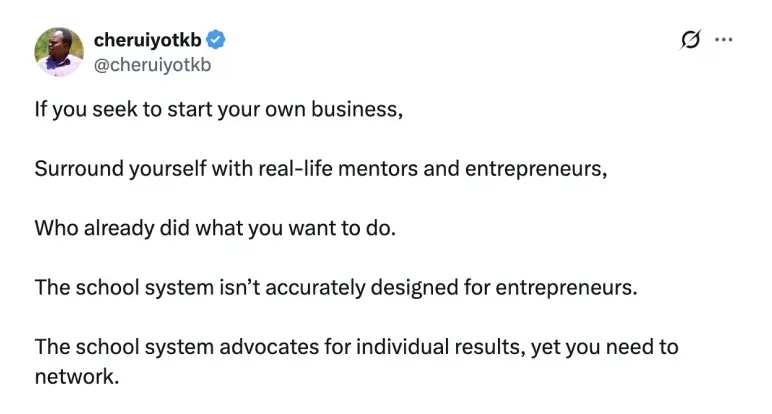
7 Direct benefits of networking (from my experience)
If you think networking is just about shaking hands with rich people at events, you’re dead wrong. Here are a few real benefits I’ve gained through networking, which completely break that myth and show what it’s actually about.
1) Warm leads that closed 30% faster than cold outreach
Events often bring unexpected networking opportunities, and one I clearly remember is the SaaSBoomi event we attended last year.
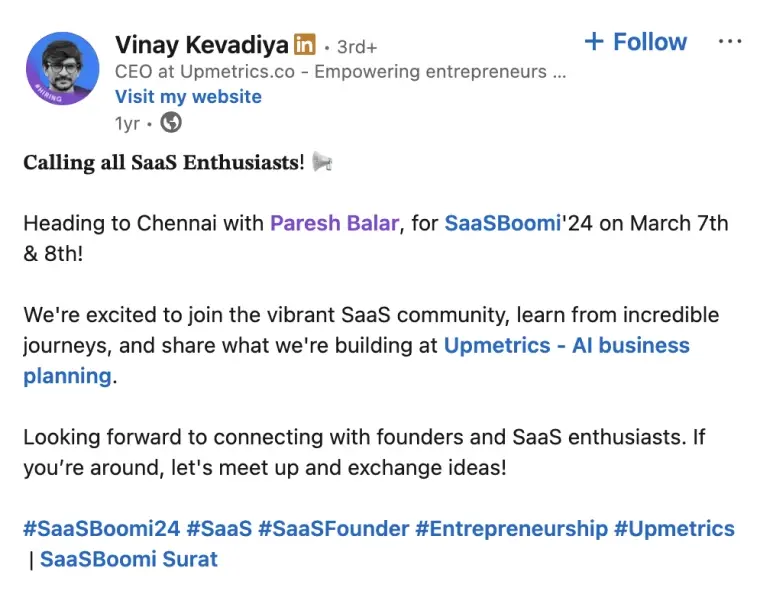
My co-founder and I joined SaaSBoomi with the simple goal of learning to understand how other startups were adopting technology and scaling their products. We didn’t walk in with sales goals or pitches in mind.
But to be honest, we walked out with a goldmine.
We met fellow founders, operators, and decision-makers across different industries. Conversations started casually, about shared struggles, growth hacks, or just product feedback. And those genuine connections turned into real business.
Several of them tried Upmetrics after the event. And because the trust was already there, deals moved fast.
These warm leads closed almost 30% faster than any cold outreach campaign we’d run. It was a clear reminder: Showing up, learning together, and simply being part of the ecosystem often gives you more than you expect.
Networking through the right communities isn’t just good for visibility; it shortens your sales cycle, too.
2) Instant credibility through trusted referrals
One thing I’ve learned over time: Trust moves faster than any marketing.
When someone I know refers Upmetrics to their circle, the credibility comes built-in. They’ve already done the work of vouching for us, and that changes the tone of the conversation entirely.
A great example is when Brandon Andrews featured Upmetrics, AI Business Planning, during his AI event series in Morocco.
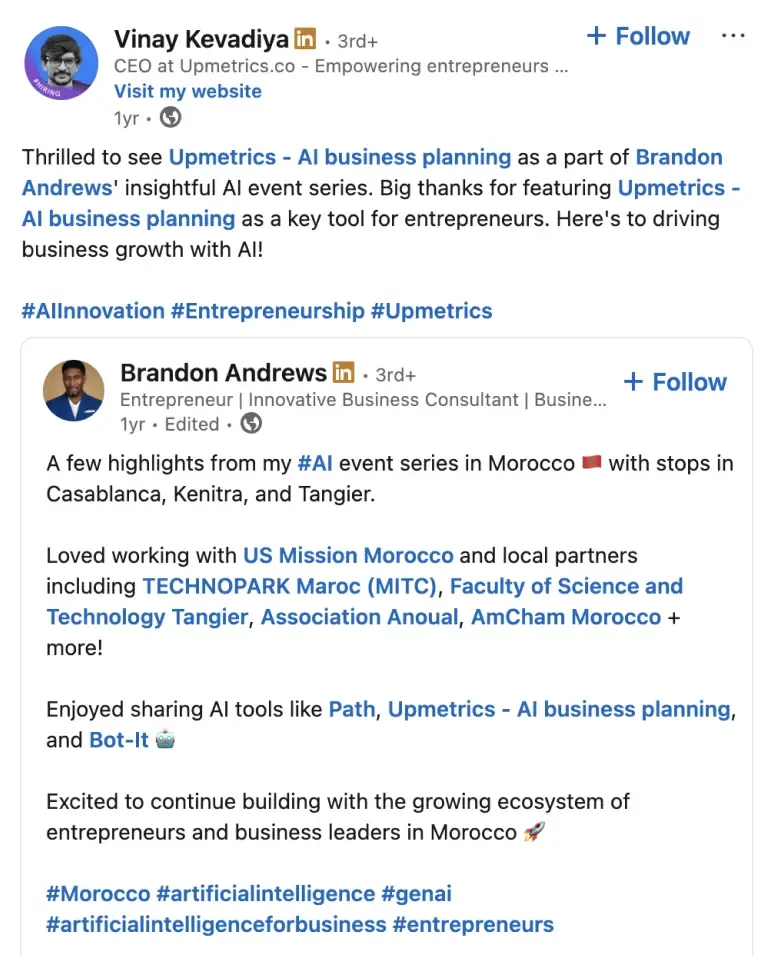
That one mention gave us visibility among founders and partners in a completely new market.
And yes, one customer did sign up, but more importantly, they came in with trust already built. They didn’t question “why Upmetrics?” Because someone they respected had already answered that for them.
That’s what a trusted referral does. It skips the convincing part and puts you directly in the conversation.
3) Seasoned mentors I can call when I’m stuck
The best outcome of networking is having mentors when you need them. Connecting with people in your field who are a few steps ahead can lead to powerful, game-changing relationships.
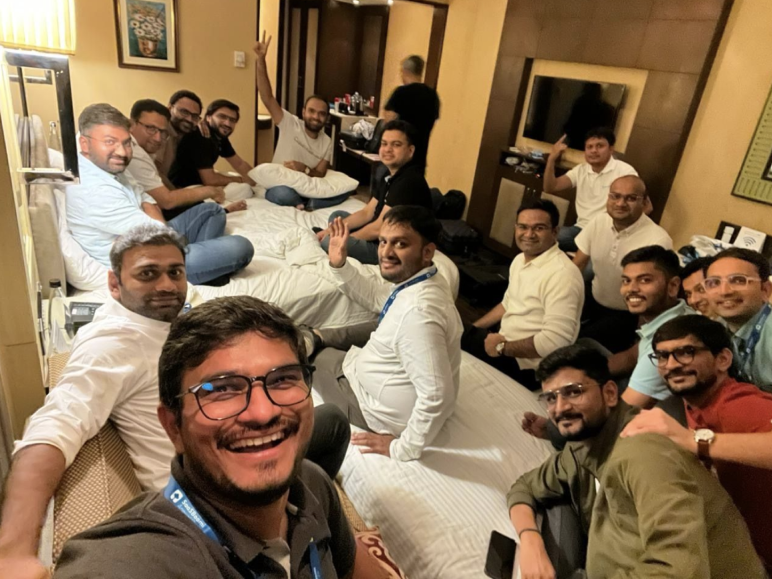
(P.S.: A laid-back day with my SaaS community where conversations flow, ideas grow, and we support each other in business, life, and everything in between.)
They’ve already faced the challenges you’re dealing with, and their guidance can save you time, mistakes, and mental energy.
Sometimes, one honest conversation with the right person gives more clarity than hours of research or internal debates.
It was hard for me to get into this community and ask questions, but once I did, the community helped me more than I expected. That support played a significant role in shaping how we built and grew Upmetrics.
4) A peer group that keeps me sane when things get rough
There were weeks when things just didn’t go as planned: Product bugs, failed experiments, and funding delays. And in those moments, the peer group that developed through networking becomes my safety net.
Just one call with someone going through the same founder chaos would reset my perspective. Sometimes they had solutions, sometimes just a “same here” that made me feel less alone.
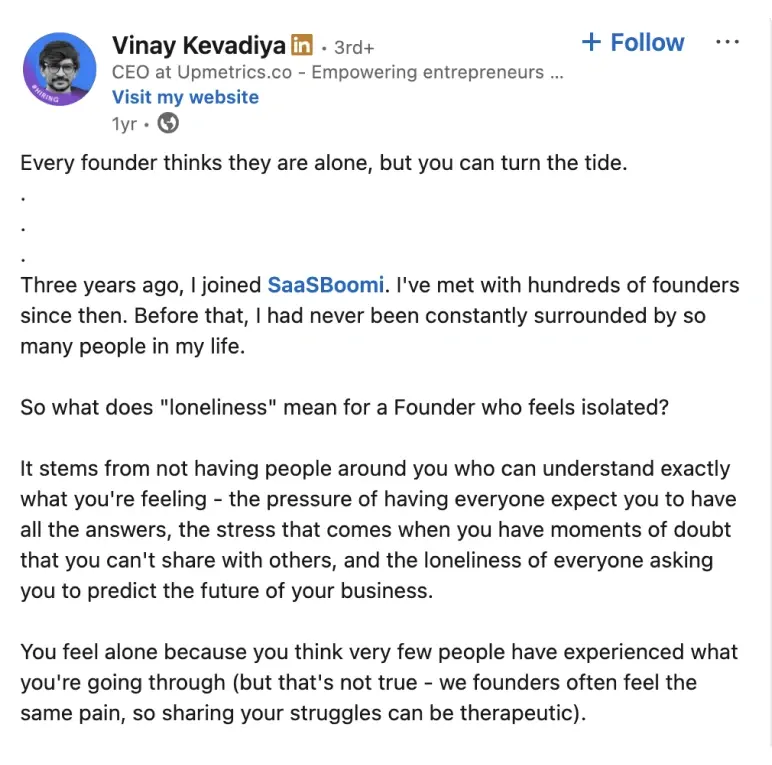
Above all, having honest conversations with fellow founders has brought meaningful benefits, such as:
- Just talking it out helped me see things more clearly.
- Knowing someone else is going through the same helped me stay grounded.
- They’d share what worked for them: Tools, hires, or hacks.
- I could be honest without putting on a founder’s face.
- Motivation, that’s all you need.
From casual coffee catchups to late-night venting calls, peers reminded me that I wasn’t alone. And in this journey, that kind of support doesn’t just feel good, it keeps you going. That’s the real power of networking.
5) Constructive initial feedback on our offerings
One of the most valuable things networking gave me early on was access to feedback I could use. Not theory. Not fluff. But sharp, real-world input from founders who’ve been through similar stages.
When you’re close to your product, you tend to overlook blind spots. Getting input from peers who understand your space helps you refine faster and build better.
For me, this meant identifying gaps in our offering long before they became problems for customers. That kind of early course correction saved us time, energy, and rework.
If you’re building something new, the right network doesn’t just validate your idea; it sharpens it.
6) Improved confidence and interpersonal skills
In the early days, I’d hesitate before reaching out to people or speaking publicly. But over time, networking changed that.
When you consistently interact with founders, investors, and mentors, you naturally become better at expressing ideas, pitching, and handling tough questions.
A great example: I co-hosted a webinar with Matthew Khalili titled “The Neuroscience of Investment Decision Making.” A year ago, that would’ve made me nervous. But being around sharp minds and actively engaging in communities helped me step into that role with confidence.
That experience wasn’t just about presenting. It sharpened how I communicate under pressure and helped me better represent Upmetrics to the world.
And that’s the hidden win of networking; it shapes your voice as a founder (Or any profession you’re in) and builds your confidence in ways you don’t even realize until you’re in the moment.
7) Solid hires I meet through friends, not job boards
As per LinkedIn data, 80% of professionals say networking plays a crucial role in their career growth.
Honestly? That’s been 100% true in my case.
Some of our best hires at Upmetrics didn’t come from job boards or recruiters. They came through friends, ex-colleagues, or even casual introductions in DMs.
When you network often, you’re not just building a community; you’re building a talent pipeline. These folks don’t need 5 rounds of interviews. You’ve already seen their work ethic or heard trusted feedback about them.
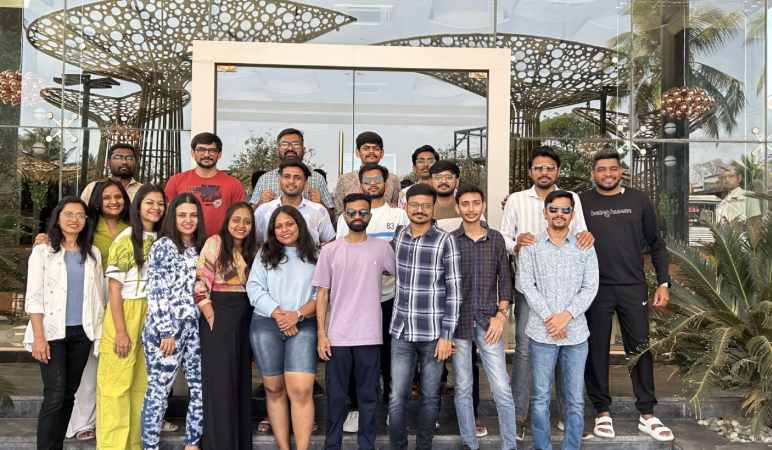
👆🏼A random click with my team during a refreshing outing.
As a founder, this saved me tons of time and brought in people who aligned with our culture faster. Another underrated win of networking? You don’t just find talent; you attract it.
Tips on networking as an entrepreneur
I’m not a natural networker. But over the years, I’ve learned that real connections open doors. Here are a few simple things that worked for me:
1) Networking is about giving
I’ve learned this the hard way; if you only show up when you need something, you’ve already missed the point.
The best relationships are built when you offer value first. Give generously, without expecting something in return. That’s how trust compounds.
2) Build a diversified network
Don’t just hang out with people who think exactly like you.
Some of my best insights came from individuals in completely different industries or roles, such as finance, product, and even design. A diverse network challenges your assumptions and exposes you to new ways of solving problems.
3) Promote others’ good work (loudly and often)
If you see someone building something valuable, say it, share it, support it. It takes nothing to uplift others, but it builds massive goodwill. People remember who cheered for them when they weren’t in the spotlight.
And someday, they’ll likely return the favor when it matters most
4) Consistently contribute
I’ve learned that networking isn’t a one-time activity; it’s a long game. So I make it a point to show up, share what I know, and help where I can, even when there’s nothing in it for me.
Over time, that consistent effort builds trust, and that trust opens doors I didn’t even know existed.
5) Judge less
One thing I’ve learned is that every person carries a story, a skill, or a struggle you can learn from. Instead of judging too soon, I’ve trained myself to listen with intention.
Some of the best ideas, hires, and collaborations came from the most unexpected people, all because I stayed open.
You don’t need to meet someone in person to network
Some of the most meaningful connections I’ve made didn’t start with a handshake, but they started with DM’s, LinkedIn posts, comments, emails, and sharing knowledge. And honestly? It worked better than we ever expected.
Networking isn’t about collecting business cards or inflating your LinkedIn connection count. It’s about adding value, even before you ask for anything in return.
I still remember one of our first clients. We were just onboarding users when they flagged a bug in our email onboarding flow. But instead of simply reporting it, they took the time to explain what was broken and shared ideas to improve the experience.
They didn’t owe us that. But because we’d been transparent and genuinely focused on helping them succeed, they felt comfortable enough to help us improve.
That moment stuck with me, not just because we fixed a critical issue, but because it reminded me that great networking isn’t always loud or visible. Sometimes, it looks like thoughtful feedback on a quiet Thursday afternoon.
It’s proof that real relationships can be built through a shared mission, not just shared space.
The bottom line
At its core, networking gives you what every entrepreneur, creator, or professional truly needs: Clarity when you’re stuck and support when it counts.
In this blog, I walked you through the real benefits I’ve seen from finding mentors and hires to building confidence through networking. Moreover, I discuss what is the importance of networking in detail.
However, remember, tools will evolve, platforms will change, but the impact of genuine relationships will always remain. Whether you’re starting or scaling up, your network will quietly shape your journey if you nurture it right.
That’s also why we’re building Upmetrics; so that when you’re ready to turn those great conversations into decks, plans, or clarity, the tools don’t slow you down.
Wishing you meaningful conversations, strong connections, and people who’ll pick up your call when it matters.


